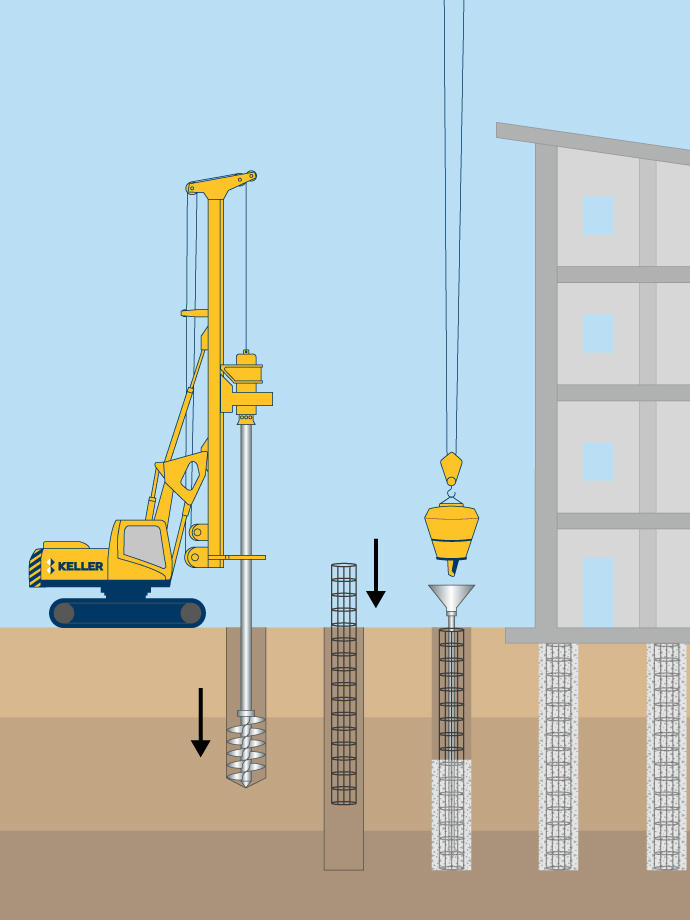Efficient Construction Practices: Drilling Piles Service for Successful Housing Projects
These specialized structural elements offer adaptability, durability, and sustainability, making them an ideal choice for constructing sturdy foundations. With their ability to withstand various soil conditions and resist vertical and lateral loads, drilling piles provide the necessary stability and safety for housing projects. By engaging professionals in foundation engineering, developers can ensure the successful implementation of drilling piles, setting the stage for durable and long-lasting buildings that stand strong for generations to come.” In the realm of construction, efficiency is key to ensuring the timely completion of projects and the overall success of housing developments. One crucial aspect of efficient construction practices is the implementation of drilling piles services. Drilling piles, also known as deep foundation systems, offer numerous advantages that contribute to the stability, durability, and cost-effectiveness of housing projects. Drilling piles involve the process of creating deep vertical holes in the ground and filling them with concrete or other materials.
These piles serve as sturdy supports for the foundation of a building, transferring the load of the structure to the underlying soil or rock. By choosing to employ drilling piles in housing projects, construction teams can achieve several benefits. Firstly, drilling piles provide exceptional cong ty thao do nha cu 4 tang gia re structural stability. They are capable of withstanding heavy loads and can be used in a variety of soil conditions, including soft and loose soils. This versatility makes them ideal for construction in diverse geographical locations. Additionally, drilling piles offer resistance against lateral forces such as wind and earthquakes, ensuring the safety and longevity of housing structures. Moreover, drilling piles reduce the risk of settlement and subsidence. By distributing the load of the building over a larger area, these deep foundation systems minimize the potential for uneven settlement, which can lead to structural damage. This is particularly significant in areas with problematic soil conditions or high water tables. By implementing drilling piles, housing projects can mitigate the risk of costly repairs or structural failures in the future.
Another advantage of drilling piles is their time efficiency. Compared to traditional shallow foundation methods, such as spread footings, drilling piles can be installed relatively quickly. The use of specialized equipment allows for faster and more precise construction, enabling housing projects to meet strict timelines. This accelerated construction process can also lead to cost savings by reducing labor and equipment usage. Furthermore, drilling piles offer environmental benefits. They have a smaller carbon footprint compared to other foundation systems, as they require less excavation and material usage. Additionally, the installation of drilling piles generates less noise and vibration, minimizing disruptions to the surrounding environment and nearby communities. To ensure the successful implementation of drilling piles in housing projects, it is crucial to engage experienced and qualified contractors specializing in deep foundation systems. These professionals possess the knowledge and expertise to assess the soil conditions, determine the appropriate pile design, and execute the drilling process efficiently.

